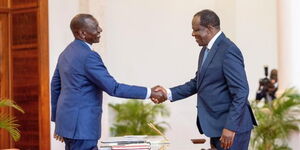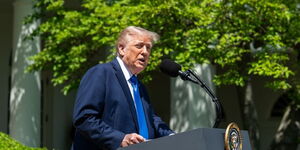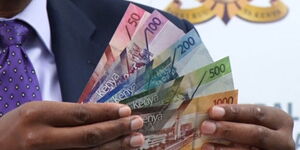UPDATE: Our attention has been drawn to articles published in today's newspapers and other media outlets suggesting that the Authority has approved higher electricity prices in the wake of renewed push by Kenya Power to have the tariffs increased by at least 20 %.
EPRA informs the public that the tariff application by the Kenya Power and Lighting Company (KPLC) is still under the Authority's review and no approvals have been granted.
Over the internal review on the tariff application has been completed, and in acordance with the Energy Act 2019 and the Constitutions of Kenya 2010, the Authority will embark on stakeholder engagements and public hearings on the application before the final approval is granted.
Kenyans are bracing for higher electricity bills after it emerged that the Energy and Petroleum Regulatory Authority (EPRA) was planning to approve Kenya Power's request to increase electricity prices by up to 20%.
"We have examined and approved the application by Kenya Power which will now be published for stakeholder consultations," the Business Daily quoted its source at the EPRA.
This comes more than a year after Kenya Power submitted its application with the energy regulator. The law provides that electricity tariffs be reviewed every three years
Kenya's sole power supplier wants to increase the consumption charge for usage of less than 100 kilowatts per month to Ksh12.50 a unit, up from the current Ksh10.
The charge for consuming above 100 units will rise to Ksh19.53 a unit from the current Ksh15.80 in the event that the regulator approves the proposed tariffs.
According to the report, the new tariffs will be revealed in the coming weeks, as Kenyans are struggling to get back on their feet after the harsh economic effects of the Covid-19 pandemic.
An increase will hit household budgets hard given that electricity prices are among expenses whose costs have jumped the most under the Jubilee administration since 2013.
Kenya Power holds that the higher tariffs are justified because the present electricity prices lapsed last year.
In 2018, EPRA reduced the retail prices of electricity after an order from President Uhuru Kenyatta in the wake of widespread complaints from domestic customers and small businesses over a costly tariff.
The tariff almost doubled the monthly bills for higher-income households, triggering complaints that forced EPRA to cut the tariff from November 2018 to July 2019 to Ksh10 per kilowatt hour from Ksh15.80 for customers who use below 100 kilowatts per month.
“Tariff is basically based on the cost of power purchase and distribution so more customers mean the operational costs go up, including the upgrade of substations, all which Kenya Power has done pretty well hence the improved quality of power. The review is being handled by EPRA,” Energy Cabinet Secretary Charles Keter told the media in July 2020.












